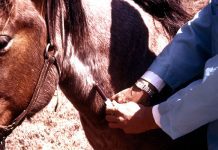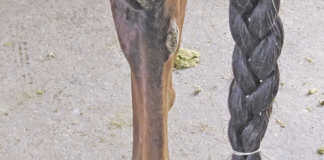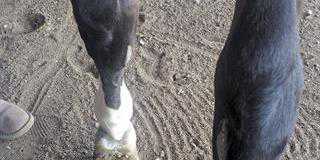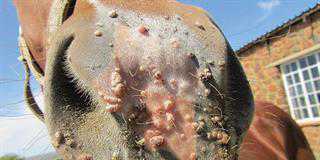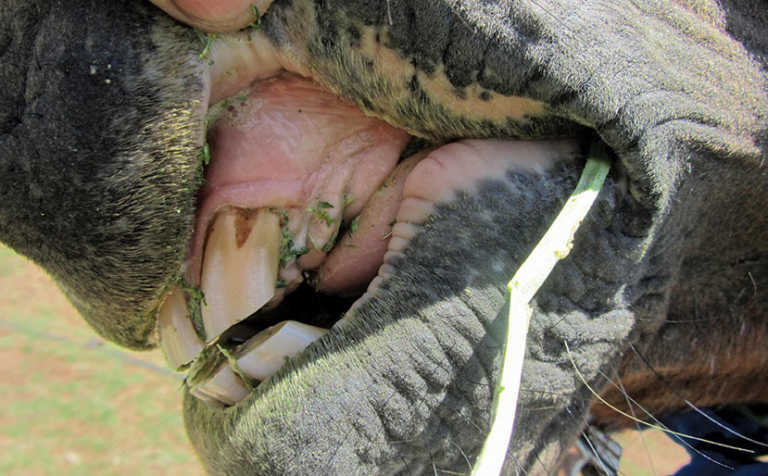
Photo: Dr Mac
Internal parasites, or worms, are the most common reason for horses losing condition, particularly in winter, when the weather is cold and the grazing poor.
Control is essential as high worm burdens not only make horses thin, but can also result in stomach ulcers, diarrhoea and severe colic, which can be fatal.
More than 100 species of internal parasites can occur in your horse’s intestinal tract and related organs, such as the liver. They fall into four main categories: roundworms, tapeworms, flukes and bots.
Roundworms
In South Africa, roundworms and bots are probably the most common. Large (Strongylus spp.) and small (Cyathostomes spp.) strongyles can damage the intestinal wall and its blood vessels, resulting in poor motility, blockages or even perforation.
They’re one of the most frequent causes of fatal colic, particularly in Thoroughbreds. Parascaris equorum is a very large roundworm, about 3mm in diameter and up to 20cm long, sometimes found in young horses, especially Arabians.
If a foal is only de-wormed after it is 18 months old, these parasites can detach from the intestine simultaneously and create a twisted mass that blocks the intestine.
It’s therefore important to start de-worming foals from three weeks of age and to continue with regular de-worming every three to six months thereafter.
Pinworms and whipworms gather around the anus to lay their eggs. The resulting irritation makes horses rub their tails bare against any available post or tree.
Infection can be seen as a whitish, powdery substance caking the edges of the anus.
Tapeworms
Tapeworms are less frequently seen than roundworms, but if diagnosed in a single horse it’s likely the whole stable is infested. Two treatments about 14 days apart are recommended for all horses on the property.
Then regular annual de-worming against tapeworms should be instituted.
Flukes
Fluke infestations are related to grazing along infected vleis or pans, particularly where horses are kept with sheep or cattle. They can lead to liver failure and severe loss of condition.
Bots
Although often listed as worms, bots are actually the larval form of the bot fly, which lays small yellow eggs on the face, chest and leg of horses in the spring and autumn. The larvae cluster in the stomach and can result in ulcers and recurrent colic.
They are very susceptible to Ivomectin and you can break the cycle by using this de-wormer twice a year, in mid-winter and mid-summer.
De-wormers
Ivermectin works well against all roundworms and bots, while Moxidectin is particularly effective against small strongyles. Fenbedazole is also effective against roundworms, as is Oxibendazoleis.
Pyrantelpamoate and Praziquantel, meanwhile, are registered for tapeworm. A vet should be consulted to diagnose and treat liver fluke.
Oral horse de-wormers can be bought over the counter at co-ops and horse supply shops. Always read the instructions carefully to see what types of worms are covered, the specific dose and whether the remedy can be used in foals and pregnant mares.



